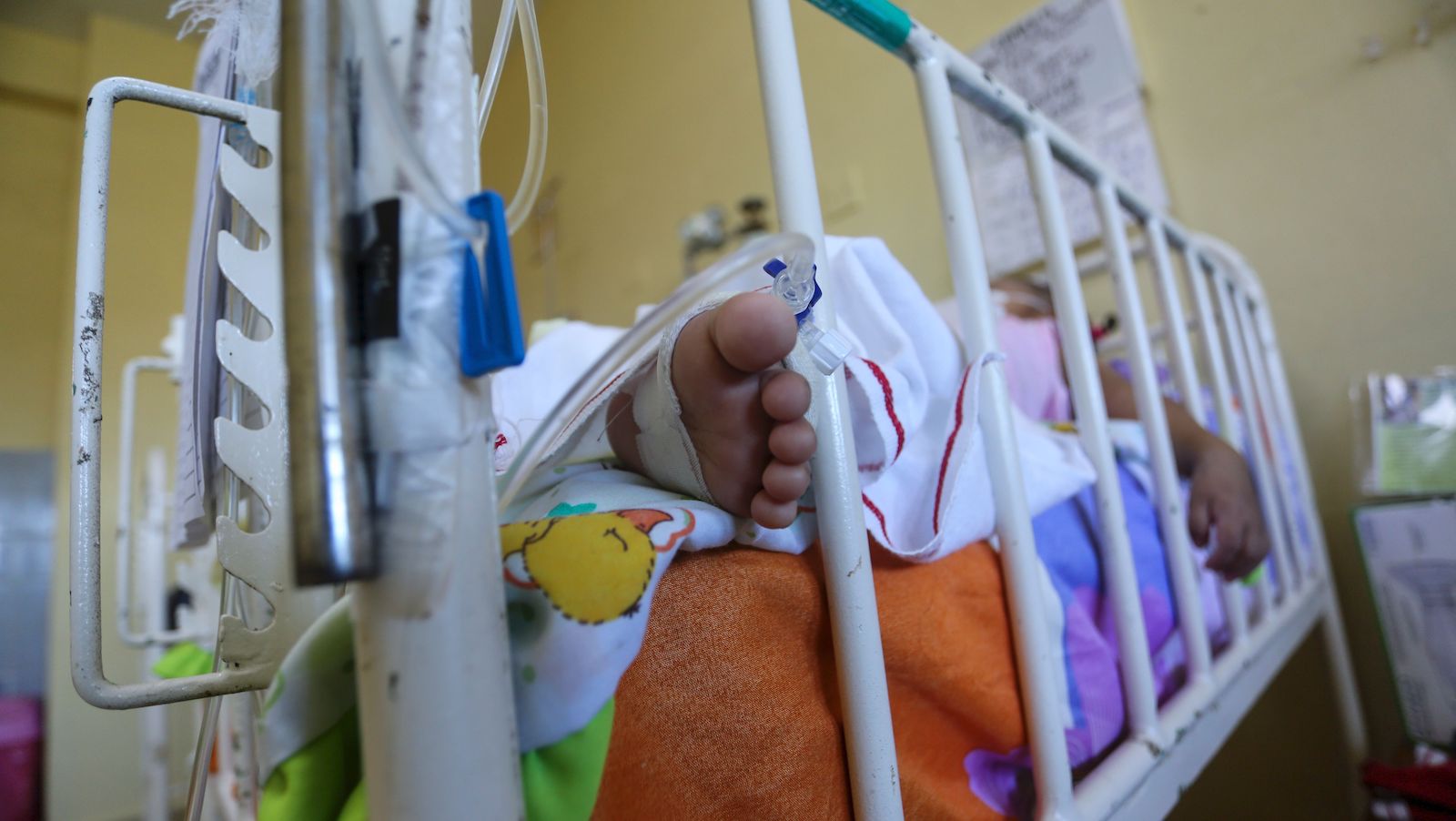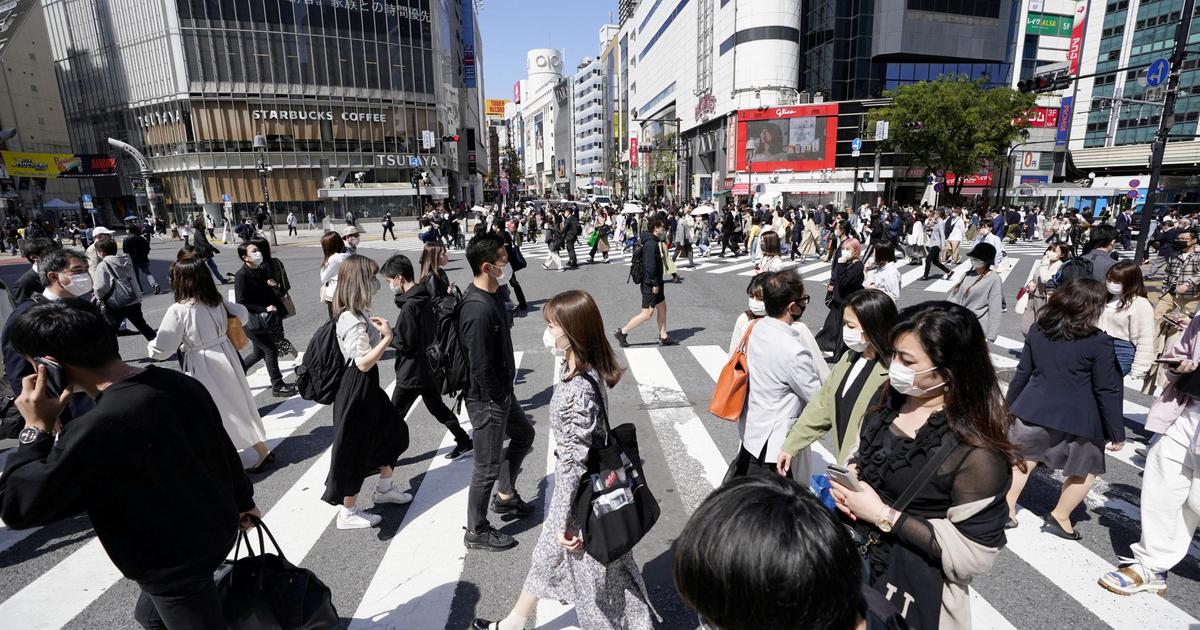Study: children can carry COVID-19 for weeks without symptoms 1:23
(CNN Spanish) -
The coronavirus seems to affect children less.
American researchers studied pediatric patients and found that, in the most severe cases of the coronavirus, they spent less time in the hospital, had less need for artificial respiration and less mortality than adults.
In this episode, Dr. Elmer Huerta explores research published in the medical journal Science Translational Medicine.
You can listen to this episode on Apple Podcasts, Spotify, or your favorite podcast platform, or read the transcript below.
Hello, I am Dr. Elmer Huerta and this is your daily dose of information about the new coronavirus.
Information that we hope will be useful to take care of your health and that of your family.
Today we will see a recent study that tries to show why children suffer from a less severe disease than adults.
It is a known fact since the beginning of the pandemic;
children infected with coronavirus generally have a much milder illness than adults.
Even - as we saw in the episode of May 14 - children with the recently described multisystem inflammatory syndrome have a very low mortality.
Children and Covid-19: What Research Says
The reason for these observations could not be elucidated, although it is believed that certain age-dependent factors could modulate the response of the defense system against the virus.
Now, in the September 21 volume of Science Translational Medicine, a group of US researchers published the first study that not only compares the characteristics of the disease, but also compares the response of the immune system to infection by the new coronavirus in children and adults.
The researchers studied 65 children and young people under 24 years of age with COVID-19, and compared them with 60 adults with the same disease.
In general, pediatric patients spent less time in hospital, had less need for intubation and mechanical ventilation, and suffered lower mortality than adults.
The study focused on studying -in the two groups of patients- the two main types of immunity that humans have, the innate and the adaptive.
The body's defense system
As we described in the episode of August 3, the innate defense system is the simplest and most elemental, and is made up of the physical barriers of the skin and mucous membranes or moist parts of the body, as well as secretions such as tears, saliva and gastric juices.
This system also includes multiple defense cells and a series of chemicals called cytokines, such as interleukins, interferons, and tumor necrosis factors, among others.
These substances not only fight the invader through inflammation, but also activate the adaptive system.
In contrast, the acquired or adaptive immune system is much more sophisticated.
It is made up of two types of lymphocytes or smart cells, T and B, which -through a complicated and sophisticated mechanism- recognize the pathogen and neutralize it.
T lymphocytes are those that recognize the invader, keep a memory of it, and B lymphocytes are those that produce specific or neutralizing antibodies against that pathogen.
The child defense system vs.
Adults
Comparison of the defense system of children and adults revealed that the amounts of two of the cytokines, interleukin 17A and interferon gamma, were much higher in children than in adults.
This would show that the innate system of children is much stronger than that of adults.
On the other hand, the adults not only had a much stronger T cell response than the children, but they also produced much more antibodies than they did.
According to the authors, these findings show that the higher frequency of complications in adults is not because their adaptive defense system is weaker than that of children, but rather because the innate system of children is more effective than that of children. of adults.
In other words, the innate system of children quickly and efficiently defeats the new coronavirus and does not allow it to invade the body.
While adults, by not reacting quickly due to a weaker innate system, they are much more affected by the virus than children.
Research results
The study debunks two explanations offered to explain why children suffer from milder disease than adults.
The first theorizes that due to recent infections with the coronaviruses that cause the common cold, children have their immune systems ready to cross-react with SARS-CoV-2.
According to the study, this is not true because the same amount of antibodies against the coronaviruses that cause colds were found in both children and adults.
And the second indicates that children had a higher production of antibodies than adults.
It also turned out not to be true;
the study revealed that, conversely, adults produce more antibodies than children.
Obviously, this is the first study of its kind, so future research will have to wait to corroborate the findings.
Do you have questions about the coronavirus?
Send me your questions on Twitter, we will try to answer them in our next episodes.
You can find me at @DrHuerta.
If you think this podcast is helpful, help others find it by rating and reviewing it on your favorite podcast app.
We will be back tomorrow so be sure to subscribe to get the latest episode on your account.
And for the most up-to-date information, you can always go to CNNEspanol.com/coronavirus.
Thanks for your attention.
If you have any questions you can send them to Dr. Elmer Huerta via Twitter. You can also head over to CNNE.com/coronaviruspodcast for all episodes of our “Coronavirus: Reality vs. Reality” podcast. fiction".
coronaviruscovid-19








